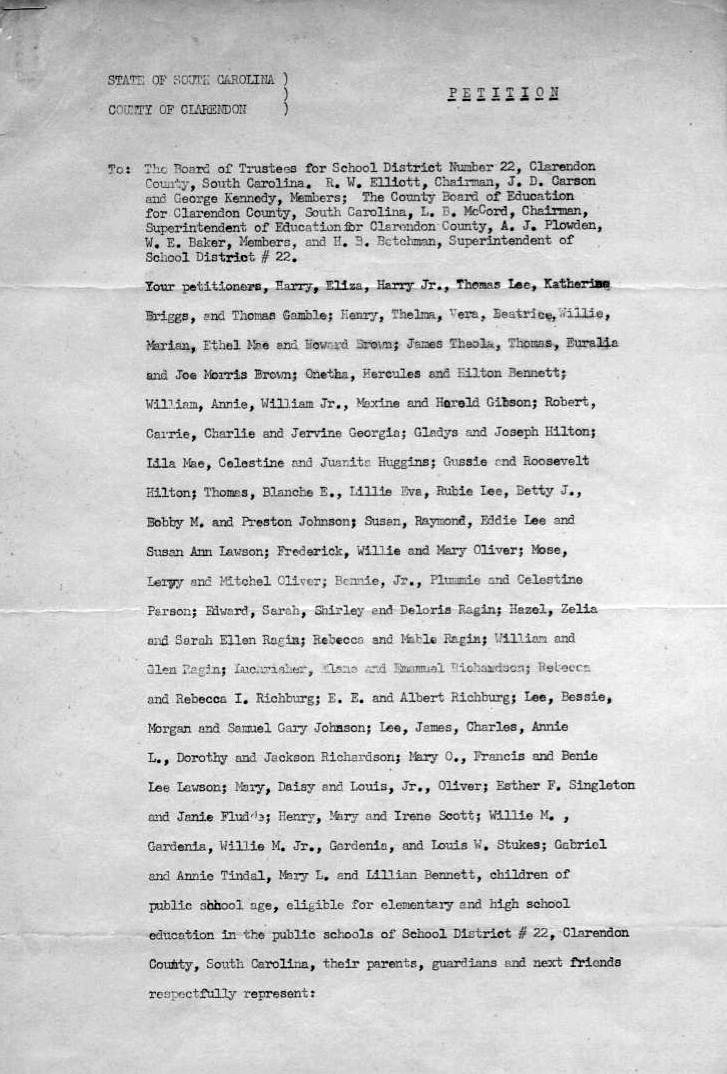RESOURCES
COURT CASES
Briggs v. Elliott
1952
Briggs v. Elliott (1952) was one of the five pivotal cases that were consolidated into the landmark Brown v. Board of Education (1954) decision, which ultimately led to the end of legally sanctioned school segregation in the United States. Originating in Clarendon County, South Carolina, Briggs began as a challenge to the unequal and underfunded conditions in Black schools under the “separate but equal” doctrine established in Plessy v. Ferguson (1896).
When the Supreme Court consolidated five school segregation cases into Brown v. Board of Education, Briggs v. Elliott became the first case listed, reflecting its foundational role.
The case was filed on behalf of Harry Briggs and other African American parents by Rev. Joseph A. DeLaine, a local teacher and minister, with legal support from the NAACP, including attorneys Thurgood Marshall, Robert Carter, and Spottswood Robinson. Initially, the goal was to obtain equal resources—such as buses—for Black students. But when school officials refused, the legal strategy shifted to a direct challenge to segregation itself, arguing that separate schools were inherently unequal and violated the Equal Protection Clause of the 14th Amendment.
In 1951, a three-judge federal panel ruled against the plaintiffs in Briggs, claiming that the schools would eventually be equalized. However, in a partial dissent, Judge J. Waites Waring strongly disagreed, writing that segregation itself was unconstitutional—a groundbreaking statement at the time. This dissent helped shape the legal and moral argument that would ultimately win in Brown.
When the Supreme Court consolidated five school segregation cases into Brown v. Board of Education, Briggs v. Elliott became the first case listed, reflecting its foundational role. Though not the lead name in the final decision, Briggs contributed significantly to the legal evidence and arguments demonstrating that segregated schools violated constitutional rights, regardless of the quality of facilities.
